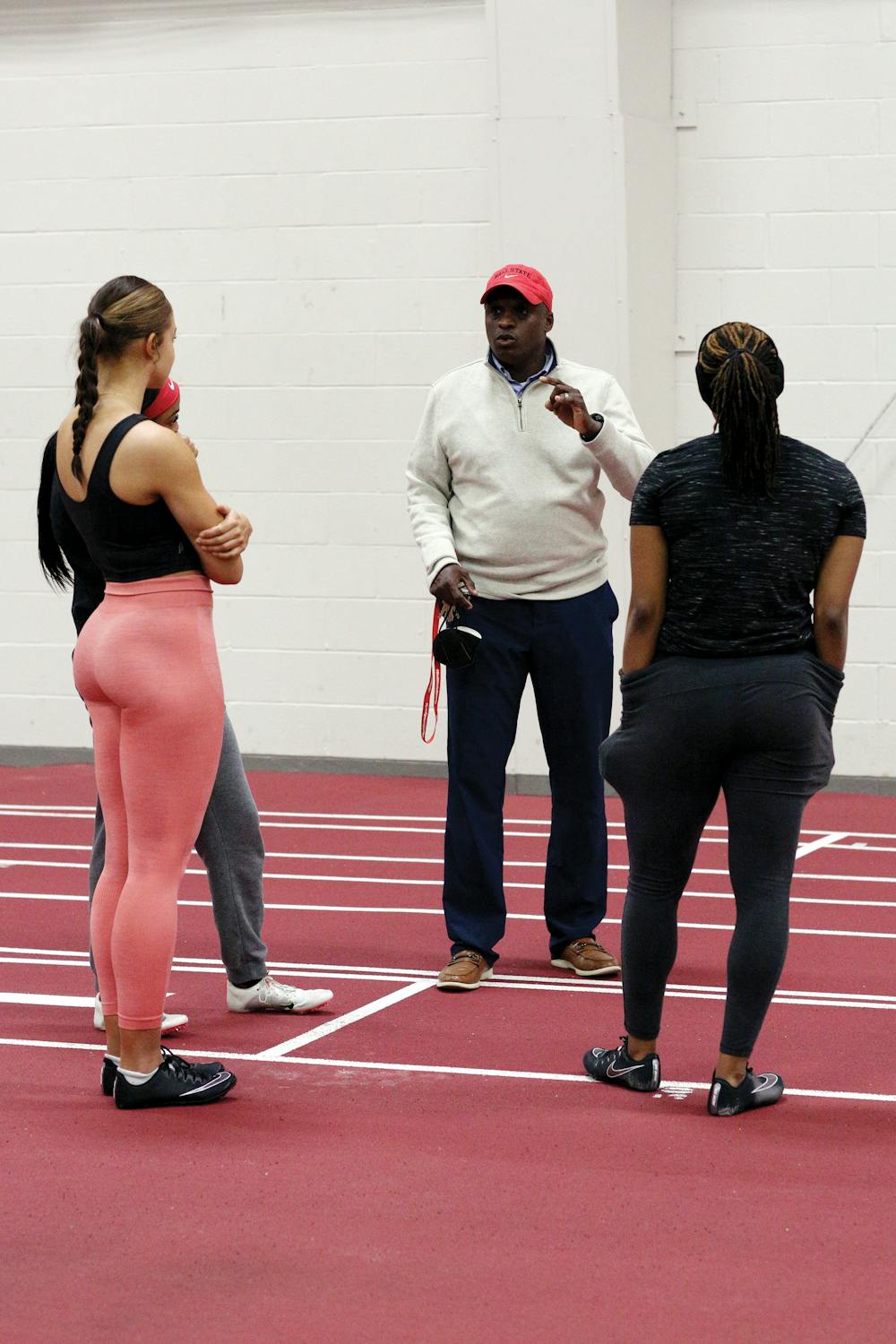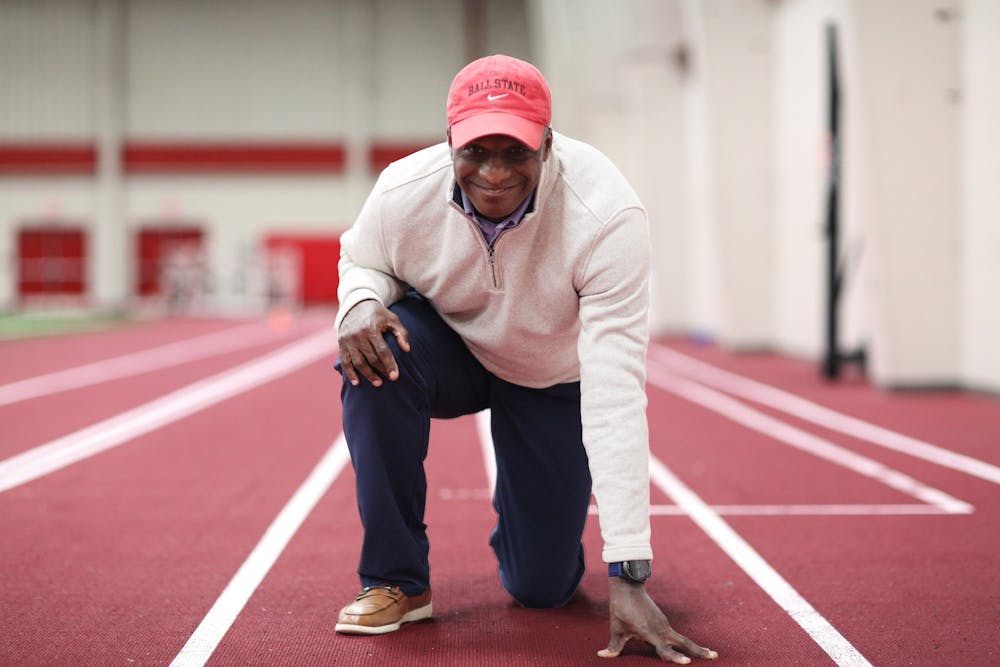After anchoring the 4x800-meter relay and running in the 400 and 800-meter events earlier in the day, then-Thomas Worthington High School senior Adrian Wheatley refused to stop competing.
It’s not who he was.
It was the preliminaries of the 1997 Ohio Boys State Track and Field Tournament that June, which meant all races were a test run for the finals.
Runners from Cleveland Heights High School were in the same heat as Thomas Worthington in the 4x400 relay, receiving the nod to start ahead.
Since it was the preliminaries, Wheatley’s coaches made it clear he didn’t need to exert himself. However, they told him he needed to give enough effort to qualify for the finals, which were set for the following day.
Wheatley couldn’t follow through with those instructions.
It wasn’t in his blood then, and it isn't now.
Although he started behind, Wheatley chased after then-Cleveland Heights sophomore runner Henry Harris as soon as the gun sounded. He eventually caught up and passed Harris to place first.
“He could’ve coasted to make the finals,” Shannon Wheatley, Adrian’s younger brother, said. “Adrian didn’t play like that. Adrian wanted them to know that was not OK.”
Nearly 25 years later, the now-Ball State Track and Field head coach thrives off his competitiveness and said it remains a fundamental piece of his identity.
“As we're doing our recruiting and identifying prospective student-athletes, one of the questions we ask is, ‘Do you love to win or hate to lose?’” Adrian said. “I think everybody has a little bit of both, but man … I hated to lose. If I didn't win, or [if] I didn't do what I expected myself to do, that really got me motivated.”
Adrian’s drive to succeed started when he picked up soccer at 5 years old. He continued playing through his senior year of high school but found his attachment to track and field after sprinting in middle school.
While at Thomas Worthington, Adrian and Shannon were teammates in soccer and track and field, and Shannon said he competed effortlessly in both sports.
“Adrian was obviously good, but he never looked like he was working that hard,” Shannon said. “In fact, Adrian made everything he did look easy on the track.”
After graduating from Thomas Worthington in 1998, Adrian continued his track and field career at the University of Tennessee. Two years later, Shannon joined him in Knoxville, and the pair helped the Volunteers win a 2001 NCAA Outdoor Championship and back-to-back Southeastern Conference (SEC) Outdoor Championships in 2001 and 2002.

While at Tennessee, Adrian served as the team captain in 2000 and was named the Ed South’s Men’s Scholar-Athlete of the Year in 2002. He became an All-American and set a school record in the 4x400 relay, producing a final time of 3:02.13.
Adrian said he remembers his time at Tennessee not solely for his accolades but the relationships he built with his teammates.
“Those memories and experiences will never get taken away from us,” Adrian said. “Those young men that we knew, trained with and competed with every day, those are lifelong friends. We look back on those experiences and really feel that they have molded us into who we are today.”
During one training session at Tennessee, Adrian and the Volunteers noticed one of their teammates missing, so they all left the session to go wake him up and get him to practice. In everything he did, Shannon said Adrian led by his actions.
“Adrian led by example,” Shannon said. “He would do the thing that he was supposed to do and do it well, whether that was a specific workout, study hall or wearing the right attire when we traveled on flights.”
Jebreh Harris, University of Southern California associate head coach of cross country and assistant track and field coach, met Adrian when the two competed for Tennessee under head coach Bill Webb. Adrian described Harris as “one of his best buds,” and Harris said the pair had a front-row seat in watching Webb develop an effective program.
“Our foundation was from champions,” Harris said. “How [Webb] managed our program, how he led the assistant coaches and the rest of the team — that type of foundation and mentorship will be a good indicator of how Ball State will transform and evolve because all we know is how to be champions … take a lick and get back up.”
Before becoming the first Black head coach in Ball State Track and Field history last August, Wheatley accumulated Division I coaching experience at the College of Charleston (2003-05), Austin Peay State (2005-07), Virginia (2007-2010), Illinois (2010-19) and North Carolina (2019-2021).
While in Tokyo for the 2020 Summer Olympics accommodating United States hurdler David Kendziera, who he coached at Illinois, Wheatley received a message about the opportunity from Ball State Deputy Athletic Director Haven Fields. Wheatley, who met Fields during his stint at Illinois, notified him of his interest. He kept in contact with him and Ball State Director of Athletics Beth Goetz.
After returning to the United States, Wheatley interviewed and took a campus visit in early August. After his visit, Wheatley went home to his wife, Hollie Wheatley, and five children. He prayed about the decision.
“I am an individual that faith is huge [with],” Adrian said. “There are always times when it's challenged, and there are always going to be things presented in front of you. You have to really take a moment to really process it and make sure that those decisions are sound in what you do.”
Adrian knows he might not win every battle but said he keeps his faith at his forefront because it reminds him of what is important.
“I try to be the best husband I can be, the best father I can be and the best coach I can be,” Wheatley said. “If I do that, then I will have done my job. There are days I fall short in all three of them, and there are days that I get wins in all three of them. I try to make sure I keep grounded in that and understand this is part of who I am and part of my responsibility as a leader.”
Moving forward, Adrian said he wants to emphasize the importance of a team-first mentality and hopes to create an atmosphere where the Cardinals respect one another and become a part of something bigger than themselves. Adrian believes there is a role for everybody in the program and wants his athletes to prosper in three phases.
“When it's all said and done and they've got to hang the spikes up, my goal as a coach is for them to look back on their time here at Ball State and be like, ‘It was the best four or five years of my life — I was able to succeed academically, athletically, and as an individual.’”
Contact Charleston Bowles with comments at clbowles@bsu.edu or on Twitter @cbowles01.




